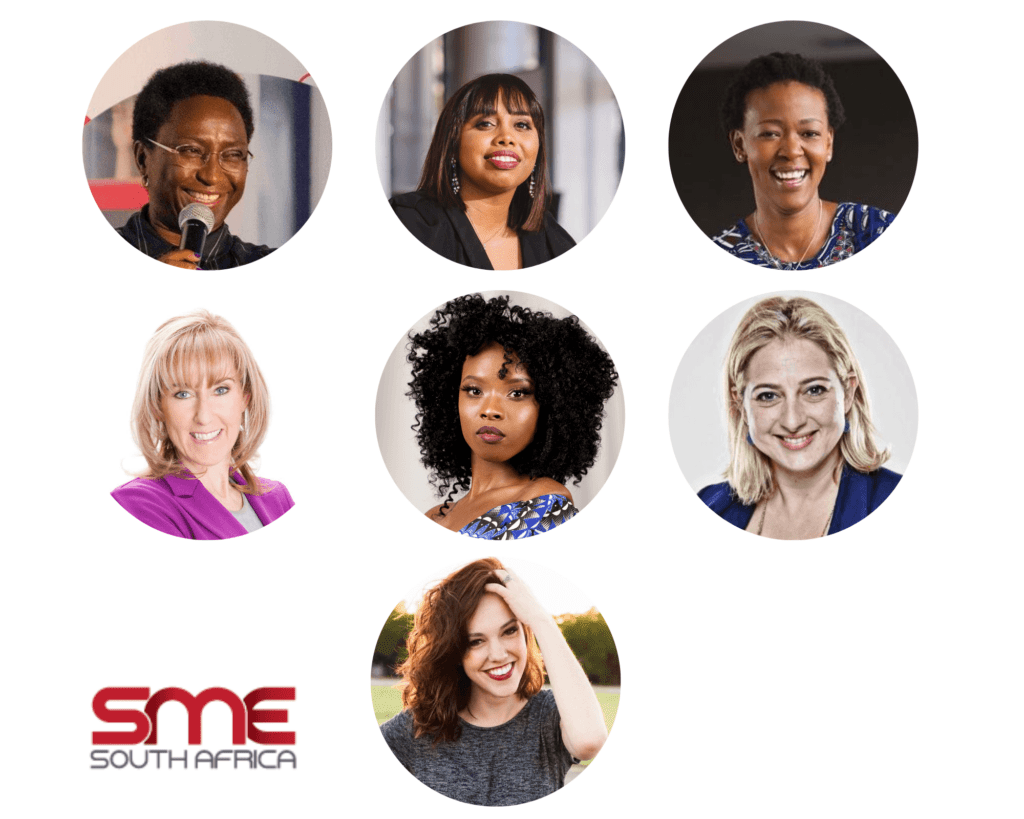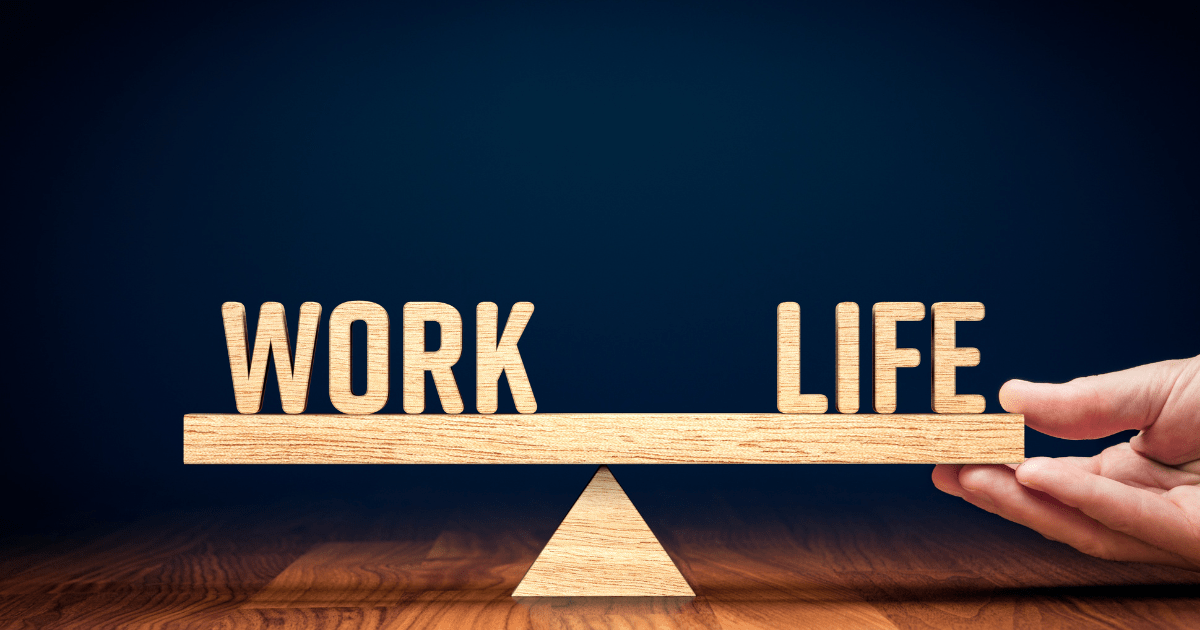This August, SME South Africa’s ‘Breaking the Funding Glass Ceiling’ Series, sponsored by Nedbank, unpacks the funding challenges women entrepreneurs continue to face, explores the innovative ways women entrepreneurs are financing their businesses AND celebrates the funding successes that have helped women build innovative & impactful businesses.

This article is the second in our Women & Funding Round Table series – SEE Part 1 HERE which explores the funding challenges faced by women entrepreneurs.
Part 2 looks at the innovative ways female entrepreneurs are navigating the obstacles they face accessing financing and what’s needed to change the status quo including more women-focused models of funding and female decision-making investors.
To discuss this, we interviewed some of the country’s foremost thought leaders, investors, CEOs, founders, and ecosystem stakeholders.

Top row: Irene Ochem, Shanéy Vijendranath, Marang Marekimane; Middle row: Donna Rachelson, Vuyolwethu Dubese, Alexandra Fraser; Bottom row: Kelley Henry. (All pictures: Supplied)
Meet the Women of the Roundtable
- Alexandra Fraser is the co-founder of Dazzle Angels, the country’s first female focused angel fund with a mission to “solve the radical gender inequality in early-stage investment management and deployment”.
- Kelley Henry is the executive director of the SoGal Foundation, a millennial-focused VC fund with a global network with over 100,000 members. SoGal’s mission is to close the diversity gap by providing resources, education, and community to underrepresented entrepreneurs worldwide.
- Shanéy Vijendranath is the founder of data analytics platform, MomSays, which helps brands engage with new moms by utilising the collective knowledge of thousands of experienced moms in the country. Vijendranath is also the chapter lead for SoGal Johannesburg.
- Irene Ochem is the founder and chief executive officer of Africa Women Innovation and Entrepreneurship Forum (AWIEF), a pan-African women economic empowerment organisation dedicated to unlocking opportunities for women-owned and women-led businesses whilst driving the agenda for women entrepreneurship in Africa.
- Marang Marekimane is the founder of Business Process Mechanics, assisting entrepreneurs to review their business models and automate business processes to build sustainable businesses.
- Donna Rachelson is a branding and marketing specialist, CEO of Branding & Marketing YOU and author of SA’s best-selling book Play to Win: What women can learn from men in business. She is a businesswoman and business investor who advocates for empowering women, corporate go-getters and entrepreneurs. She is also a well-known speaker.
- Vuyolwethu Dubese is a professional in impact and inclusive development, and innovation strategy. Over the past five years, she’s served as a Startup Partnerships Lead for Africa for global intelligence firm, Thomson Reuters and as an Impact Acceleration Associate at investment and advisory firm, Impact Amplifier and served on boards.
Q: What are some of the ways that women are currently navigating the discrimination and limited access to finance that they continue to face?
Irene Ochem – Most women founders have to resort to using either personal savings or loans from families and friends to finance their startups and early-stage ventures.
Shanéy Vijendranath – Women are great networkers and most entrepreneurs tend to harness this.
Marang Marekimane – For centuries, women have been bootstrapping to take care of the families and communities – it could be said “we’re born to build sustainable communities” and we should continue to demonstrate how this is a better way of doing business.
Marang Marekimane – Networks are important in facilitating access to funding. Leveraged effectively, your network is a source of information about funding opportunities. You can also leverage your network to assist with compiling funding proposals/applications or collaborate to form a team to build capacity for projects.
Alexandra Fraser – Most businesses don’t receive funding. Entrepreneurs have to build something that is self-funded and sustainable. Customers are critical – listening to your customer and making sure you are delivering value. [It’s also important to] support other women as suppliers in their businesses.
We are also seeing a huge number of female entrepreneurship support networks, for example Future Females and AWIEF, both formal and informal. These are starting to expand and grow. Digital media tools and social media make it easier than ever for women to work together.
- SEE ALSO: Part 1 (Challenges) HERE
Q: There is little doubt that we need new and more inclusive lending models suited for the South African ecosystem – what do these look like to you?
Irene Ochem – Yes, there is absolutely need for new and more inclusive financing models in South Africa. Women entrepreneurs need support through effective and well-structured financial instruments supported by targeted skills and capacity building programmes.
Shanéy Vijendranath – An inclusive lending model to me will really look at the merit of the idea and business plan and allow it to be judged objectively. Suggestions can be given but ultimately decisions should be based on merit and flexibility. We need to see what works for us. What makes South Africa different? How can we adapt to change?
Alexandra Fraser – I would love for 50% of all capital to be managed by women – gender equity at fund management and deployment level is important. It’s not a short-term goal that will be fixed overnight.
Kelley Henry – Demand change. It’s not our fault that the system wasn’t built for us, and it shouldn’t be our responsibility to adapt to a system that doesn’t serve us. The system must change, and women must be the drivers to a more equitable and inclusive ecosystem for all.
Donna Rachelson – Venture capitalists need to step up their game too when it comes to diversifying their portfolios. Women should support other women, applications should not disclose gender and partner voting should be unanimous.
Vuyolwethu Dubese – The amplification of and re-investing into gender lens investing, public sector policy engagement on government fund distribution, men being educated about the explicit discriminatory misogynistic business practices that make women vulnerable to being labeled the risky gender to invest in and continuous exposure and knowledge to women who not only have access to the internet and whose businesses require them to wear high heels. The root cause of the gender investment gap is systematic, and needs more than women’s mobilisation and voices on such matter, but all stakeholders who benefit from this are responsible for this gap.
Q: What advice do you have to offer women entrepreneurs to become investment ready?
Vuyolwethu Dubese – In my experience with corporate funding and capital deployment, ensure that your pitch deck, financials (including company valuation and the type of financing you’re looking for) and company documents (including team CVs and IP registrations etc.) are ready and that you’re intimate with this information. Practice makes perfect, so go over the pitch and questions that investors may ask, and ensure that they are just as aligned to your investment goals as you are committed to getting funded.
Donna Rachelson – Women need to take this into their own hands by focusing on business traction to peak investor interest. Being able to show an increase in the orders coming in and that their business is bigger than just one person are vital. Of course, also key to showing growth is knowing what the key financial drivers of their business are and being comfortable talking about them – many women fall down here.
Focused marketing will go a long way too, as will a clear understanding of target markets and key business differentiators. It’s not always possible to wait until everything is perfect before looking for funding. Women tend to be perfectionists and need to practice confidence, which goes a long way towards ‘faking it until you make it.’
Marang Marekimane – It will also be important for us to consciously leave the doors of opportunity open for those behind us to have access.
Marang Marekimane – Show up ready to own it – understand the type of funding you need to achieve different types of growth objectives. Bearing in mind that not all funding needs to be in the form of money. Having access to market (sales) and resources (increasing capacity) spare you some expenses or earn you assets – that scales the business.
It helps to plan for multiple scenarios – you are more prepared and confident to handle negotiations if you have thought of multiple outcomes to the pitch. Also set some non-negotiables for the deal. At the very least, get the non-negotiables.
- SEE ALSO: Part 1 (Challenges) HERE


